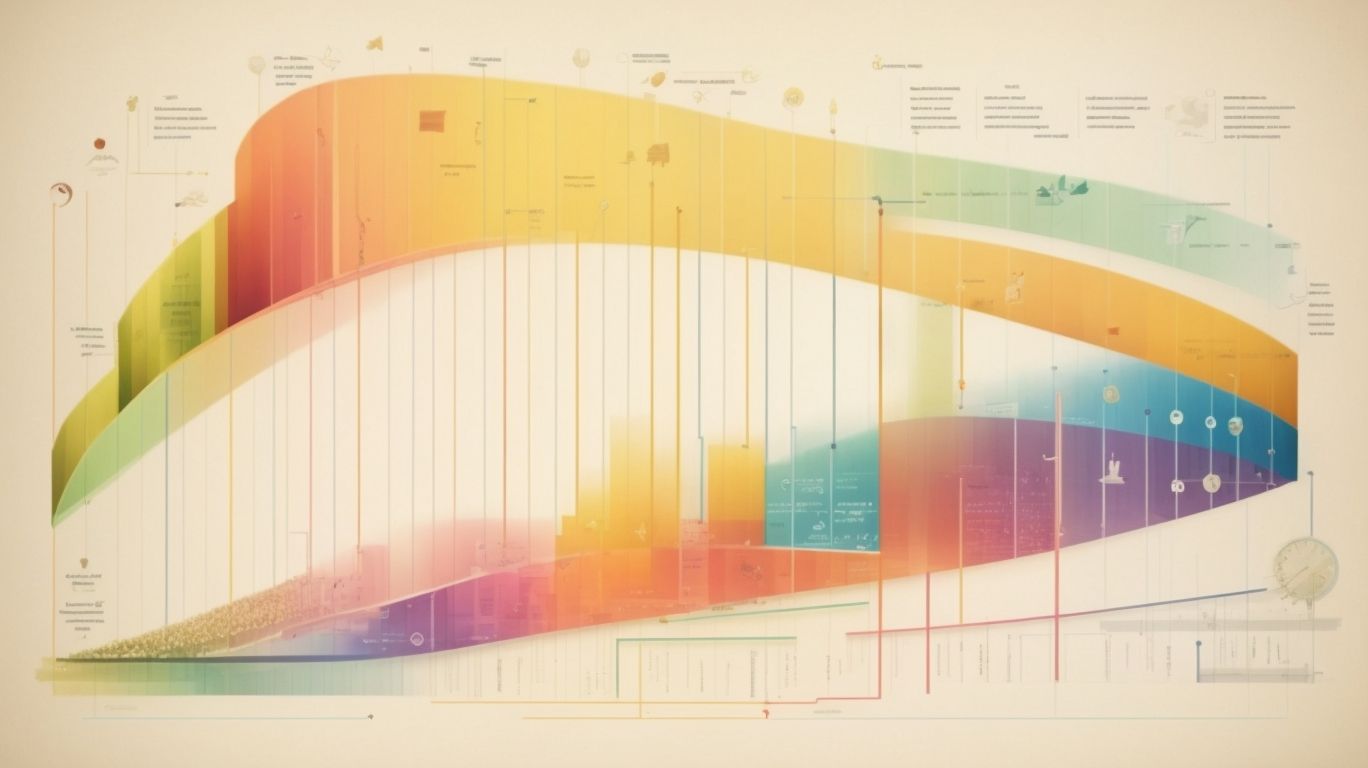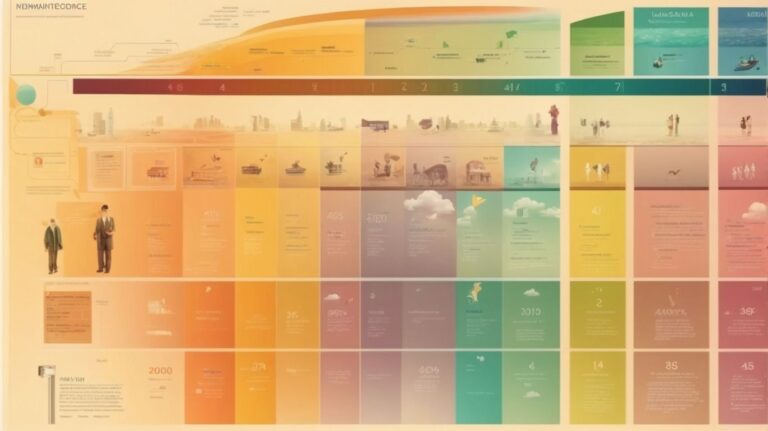Developmental psychology is a fascinating field that aims to understand and explain the processes of human development. In this article, we will explore the major goals of developmental psychology, including describing and understanding development, explaining developmental changes, predicting developmental outcomes, and optimizing developmental outcomes.
We will also delve into key concepts such as nature vs. nurture, continuity vs. discontinuity, and stability vs. change, as well as the different stages of development from prenatal to adulthood. We will examine the various influences on development, including biological, environmental, and social and cultural factors. Join us as we take a deep dive into the world of developmental psychology.
Contents
- 1 Key Takeaways:
- 2 What Is Developmental Psychology?
- 3 What Are the Major Goals of Developmental Psychology?
- 4 What Are the Key Concepts in Developmental Psychology?
- 5 What Are the Different Stages of Development?
- 6 What Are the Influences on Development?
- 7 Frequently Asked Questions
- 7.1 What is the main focus of Developmental Psychology?
- 7.2 What are the major goals of Developmental Psychology?
- 7.3 What is the importance of understanding the major goals of Developmental Psychology?
- 7.4 How does Developmental Psychology contribute to our understanding of human development?
- 7.5 What are some of the factors that influence development studied in Developmental Psychology?
- 7.6 What are some potential applications of Developmental Psychology?
Key Takeaways:
- Developmental psychology aims to understand, explain, and optimize human development.
- The major goals of developmental psychology include describing, understanding, predicting, and optimizing developmental outcomes.
- Nature vs. nurture, continuity vs. discontinuity, and stability vs. change are key concepts studied in developmental psychology.
What Is Developmental Psychology?
Developmental psychology is a branch of psychology that focuses on how people grow and change over the course of a lifetime, from infancy to older adulthood, and the factors that influence such development.
This field studies various aspects of human development, such as physical, cognitive, social, and emotional changes, and how these occur over time. It examines the impact of nature versus nurture, the role of genetics, environment, and upbringing, and the influence of cultural and societal factors on development.
With a rich historical context dating back to theorists like Jean Piaget and Erik Erikson, developmental psychology has evolved to encompass a wide range of theories and research methodologies.
Understanding human development is crucial for educators, parents, healthcare professionals, and policymakers, as it informs effective practices for promoting individual growth, well-being, and societal progress.
What Are the Major Goals of Developmental Psychology?
The major goals of developmental psychology are to describe and understand development, explain developmental changes, predict developmental outcomes, and optimize developmental outcomes through research and interventions.
Describe and Understand Development
One of the key goals of developmental psychology is to describe and understand the various aspects of human development, including physical, cognitive, emotional, and social changes that occur across the lifespan.
Understanding developmental psychology involves encompassing different developmental domains and stages. These include physical development, which involves changes in height, weight, and motor skills.
Additionally, cognitive development involves changes in thinking, intelligence, and language. Emotional development refers to the understanding and management of emotions, while social development encompasses interactions and relationships with others.
By integrating these developmental domains, psychologists can gain a comprehensive understanding of how individuals grow and change from infancy to old age.
Studying developmental psychology helps in recognizing the impact of various factors, such as genetics, environment, and culture, on human development. This contributes to our understanding of human behavior and well-being.
Explain Developmental Changes
Another crucial goal of developmental psychology is to explain the processes and mechanisms underlying developmental changes, including the role of genetics, environment, and individual experiences in shaping human development.
Genetics play a significant role in influencing an individual’s developmental trajectory. They determine an individual’s predisposition towards certain traits and characteristics.
The influence of environment on development is profound. Factors such as socio-economic status, cultural norms, and access to resources all shape an individual’s experiences.
Individual experiences, both within the family and broader social context, further contribute to the intricate interplay of influences on human development. They shape cognitive, emotional, and social development.
Predict Developmental Outcomes
Developmental psychology seeks to predict developmental outcomes by identifying patterns and trajectories of development, as well as the potential impact of various factors on individuals’ growth and behavior.
One key aspect of developmental psychology is the identification of predictive factors that may influence an individual’s development.
These factors can include genetic predispositions, early childhood experiences, socio-economic status, and access to resources. By analyzing these factors, psychologists can identify trends and potential risk factors that may impact an individual’s overall development.
This field also explores the role of cognitive, emotional, and social development, providing valuable insights into potential outcomes for individuals at different stages of life.
Optimize Developmental Outcomes
Lastly, developmental psychology aims to optimize developmental outcomes through targeted interventions and strategies that promote positive development and well-being across the lifespan.
Research in developmental psychology extensively explores various methods to enhance cognitive, emotional, and social development.
In the realm of child development, early intervention programs and parenting support play a crucial role in laying a strong foundation for future success.
Educational practices, such as individualized learning plans and skill-building activities, contribute to fostering cognitive growth and academic achievement.
Throughout the lifespan, interventions focus on promoting resilience, adapting to life transitions, and fostering positive relationships.
Evidence-based practices, including psychotherapy and behavioral interventions, are implemented to address developmental challenges and enhance overall well-being.
What Are the Key Concepts in Developmental Psychology?
Developmental psychology encompasses key concepts such as nature vs. nurture, continuity vs. discontinuity, and stability vs. change, which are central to understanding the complexities of human development and behavior.
Nature vs. Nurture
The debate between nature and nurture is a fundamental concept in developmental psychology, exploring the interplay between genetic predispositions and environmental influences on human development and behavior.
This debate has a rich historical significance, dating back to ancient philosophy and continuing through modern scientific research.
The ancient Greeks deliberated on the importance of environment versus inherent traits, while the debate gained momentum during the scientific revolution and the rise of behaviorism in psychology.
Today, contemporary perspectives acknowledge the intricate interaction between genetic factors and environmental experiences in shaping an individual’s traits and behaviors. The amalgamation of genetic predispositions and environmental stimuli plays a crucial role in various developmental outcomes, from cognitive abilities to personality traits.
Continuity vs. Discontinuity
The concept of continuity vs. discontinuity examines whether development occurs gradually and smoothly or through distinct stages and transitions, shaping our understanding of human growth and change.
For instance, in the realm of cognitive development, the renowned psychologist Jean Piaget proposed a discontinuous stage theory where children progress through four distinct, universal stages of cognitive development.
On the other hand, proponents of continuity emphasize the gradual accumulation of skills and knowledge over time, without abrupt shifts.
Research in this area has produced diverse findings, with some aspects of development showing clear stages, while others demonstrate a more continuous progression.
Understanding the interplay between continuity and discontinuity is essential for comprehending the complex nature of human development.
It is crucial for educators, psychologists, and parents to consider these concepts when navigating the challenges of nurturing and supporting individual growth.
Stability vs. Change
The balance between stability and change in developmental psychology explores the degree to which individuals’ traits and characteristics remain consistent or undergo transformations over time, influencing their developmental trajectories.
This dynamic interaction significantly impacts the formation of identity, coping mechanisms, and interpersonal relationships.
At the core of this duality lies the question of nature vs. nurture, as genetic predispositions interact with environmental influences to shape an individual’s development and behavior.
While stability provides a sense of continuity and predictability, change presents opportunities for growth and adaptation, contributing to the multi-faceted nature of human development.
The balance between these forces shapes an individual’s resilience, response to adversity, and overall psychological well-being.
What Are the Different Stages of Development?
Human development progresses through various stages, including prenatal development, infancy and toddlerhood, early childhood, middle childhood, adolescence, and adulthood, each characterized by distinct milestones and challenges.
Prenatal Development
Prenatal development encompasses the stages of growth and changes that occur in the womb, from conception to birth, playing a crucial role in shaping an individual’s future development and well-being.
During the prenatal period, prenatal care is of utmost importance to ensure the health and well-being of both the mother and the developing fetus. This involves regular check-ups, proper nutrition, and avoidance of substances that could be harmful.
The fetal development progresses through distinct stages, from the embryonic period to the fetal period, with vital organs and systems forming and maturing.
Various influential factors such as genetics, maternal health, and environmental influences can significantly impact prenatal development, highlighting the importance of a supportive and healthy prenatal environment.
Infancy and Toddlerhood
Infancy and toddlerhood mark the early years of life, characterized by rapid physical, cognitive, and socioemotional development, laying the foundation for future growth and learning.
During this period, infants undergo remarkable changes in their motor skills, such as grasping objects and eventually walking independently.
The cognitive development is evidenced by their ability to explore, imitate sounds, and start forming basic words. Moreover, socioemotional progress involves bonding with caregivers, expressing emotions, and developing a sense of trust.
These foundational milestones pave the way for future learning and contribute significantly to the child’s overall development.
Early Childhood
Early childhood represents the preschool years, featuring significant advancements in language, social skills, and cognitive abilities, as children embark on their formal learning and socialization journey.
During this developmental stage, language acquisition reaches a pivotal point, with children rapidly expanding their vocabulary and grasping complex grammatical structures. Their cognitive abilities flourish, as they begin to solve problems, engage in imaginative play, and understand cause-and-effect relationships.
Socially, early childhood lays the foundation for interactions with peers, helping children understand the concept of sharing, taking turns, and empathy.
Middle Childhood
Middle childhood, also known as the school-age years, is characterized by further cognitive development, academic learning, and significant social interactions within peer groups and educational settings.
This stage typically ranges from around 6 to 12 years of age and is a period where children exhibit rapid growth in reasoning, memory, and problem-solving skills.
Academic ventures become more structured and demanding, with a heightened focus on reading, writing, and mathematics.
Socially, they transition towards more complex relationships and greater independence, nurturing friendships and learning to resolve conflicts within various social environments.
Adolescence
Adolescence signifies the teenage years, marked by physical maturation, identity exploration, and the navigation of complex social and emotional challenges as individuals transition into young adulthood.
Physical changes during adolescence are driven by hormonal fluctuations, leading to increased height, muscle development, and sexual maturation.
Cognitive abilities such as abstract thinking and problem-solving undergo significant advancements, contributing to enhanced decision-making skills.
The socioemotional aspect of adolescence involves forming new relationships, experiencing peer pressure, and establishing a sense of self-identity.
These developmental dynamics shape the individual’s future interactions and play a crucial role in their overall well-being.
Adulthood
Adulthood represents the stage of maturity and independence, where individuals further develop their careers, relationships, and personal identities, navigating the complexities of adult life and responsibilities.
During this stage, individuals typically move beyond entry-level positions, seeking career advancement and greater professional fulfillment.
Their relationships evolve, with many establishing long-term partnerships or marriages, while others may focus on personal growth and self-discovery.
Personal development becomes a key focus, as adults seek to understand their values, beliefs, and aspirations, shaping their sense of purpose and fulfillment.
What Are the Influences on Development?
Development is shaped by diverse influences, including biological factors, environmental conditions, and social and cultural contexts, all of which play pivotal roles in individuals’ growth and behavior.
Biological Influences
Biological influences on development encompass genetic predispositions, hereditary traits, and neurobiological processes that contribute to an individual’s physical, cognitive, and emotional growth.
These genetic factors can play a critical role in shaping an individual’s unique characteristics, such as height, hair color, susceptibility to certain diseases, and even personality traits.
Physical maturation, another biological influence, involves the body’s gradual development, including changes in height, weight, muscle mass, and sexual characteristics. Inherited traits, passed down through genes, can impact an individual’s predisposition to various conditions and diseases, influencing the overall course of development.
Environmental Influences
Environmental influences on development pertain to the impact of surroundings, early experiences, and upbringing on an individual’s cognitive, emotional, and social development throughout their lifespan.
These environmental factors serve as the building blocks for an individual’s progression, shaping their thought processes, emotional responses, and social behaviors.
The early experiences within the family unit play a critical role in establishing foundations for cognitive development and forming emotional attachments.
The dynamics and interactions within the family, including relationships with parents and siblings, significantly contribute to emotional and social development.
Societal contexts, such as cultural norms, economic conditions, and community support, also influence an individual’s development by providing the framework for social integration and shaping cognitive and emotional responses to external stimuli.
Social and Cultural Influences
Social and cultural influences on development encompass the impact of societal norms, traditions, and cultural practices on individuals’ identity formation, interpersonal relationships, and behavioral patterns.
These influences play a significant role in shaping an individual’s perceptions, values, and outlook towards life.
Cultural practices such as ceremonies, rituals, and rites of passage contribute to the sense of belonging and connection to one’s community, fostering a strong cultural identity.
Societal norms set the behavioral expectations and standards that individuals adhere to, ultimately influencing their decision-making and interactions within the community.
Understanding the interplay between these factors is crucial in comprehending the complexities of human development and the rich tapestry of diverse cultural expressions.
Frequently Asked Questions
What is the main focus of Developmental Psychology?
Developmental Psychology is the scientific study of how people grow, develop, and change over the course of their lives, with a special focus on childhood and adolescence.
What are the major goals of Developmental Psychology?
The major goals of Developmental Psychology include understanding the processes and mechanisms of development, identifying the factors that influence development, and promoting positive development and well-being in individuals.
What is the importance of understanding the major goals of Developmental Psychology?
Understanding the major goals of Developmental Psychology can help us gain a deeper understanding of human development and behavior, as well as inform policies and interventions to promote healthy development.
How does Developmental Psychology contribute to our understanding of human development?
Developmental Psychology uses a scientific approach to study how individuals develop and change physically, cognitively, emotionally, and socially throughout their lifespan.
What are some of the factors that influence development studied in Developmental Psychology?
Some factors that influence development studied in Developmental Psychology include genetics, environment, culture, and individual experiences.
What are some potential applications of Developmental Psychology?
Developmental Psychology has many potential applications, such as informing educational practices, designing interventions for individuals with developmental delays or disabilities, and shaping public policies related to child development and well-being.



